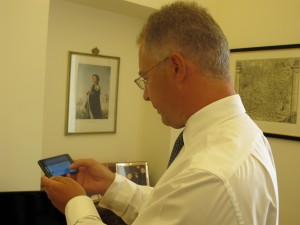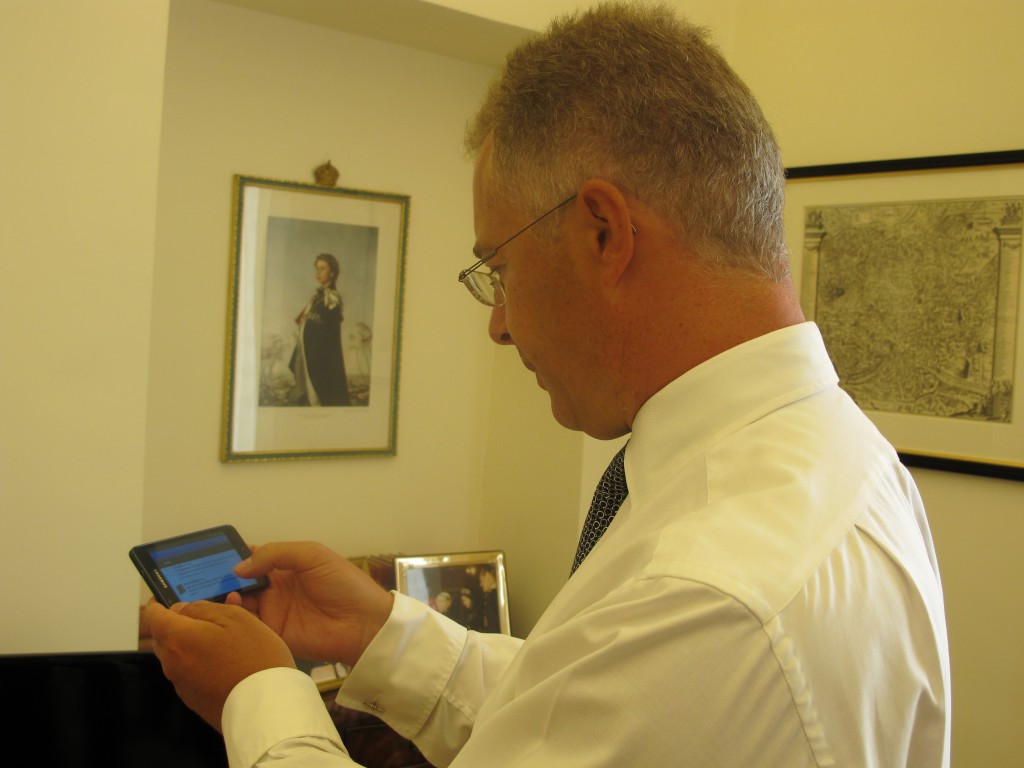
I recently ran a competition on Twitter, inviting questions about the Holy See and the UK’s relationship with it. The response was impressive, with many searching questions. Below are the winners, their questions, and slightly lengthier answers than the 140 characters Twitter permits.
Q. What made possible the great shift from historical anti-Catholicism to dialogue and confidence in UK/Vatican relations? – submitted by Giulio
My Twitter answer was: “Time. Vatican II. Ecumenism. Popes since WWII. 1982 Papal visit. Basil Hume. Northern Ireland dialogue. Better UK understanding.” All were key elements, Giulio, and I don’t think it is possible to say there was one single factor. You are right that well into the twentieth century there was residual nervousness in the UK, reflecting historical relationships since the Reformation, about establishing a full diplomatic presence in Rome. Ironically, though, the Holy See and Britain were great allies in the war against Napoleon, reflected in the Lawrence portrait of Pope Pius VII that hangs in the Waterloo Gallery at Windsor Castle. It helps, now, that religion is not a visceral issue in British domestic affairs, and that the Pope is a spiritual – albeit global – but not a temporal leader. There is so much we can do together.
Q. What can the UK learn from the Holy See’s role in international affairs and global diplomacy? – submitted by Jamie Kerr
Jamie, the universality of the Holy See’s approach is always impressive. Yes, it does have its own ‘interests’ – but how many other world leaders address global issues with the deep concern for human dignity that we see from the Pope? Holy See diplomacy is patient and cautious, sometimes excessively so, but with a long term perspective that tends to trump electoral cycles and short term considerations. Patience is definitely a diplomatic virtue.
Q. The strong UK relationship with the Holy See is well known, especially under Benedict XVI. What differences under Pope Francis? – submitted by Domenico Musso
Q. Has life / work as a diplomat changed at all since Pope Francis was elected – if so how? – submitted by Rory O’Donovan
I would not underestimate the importance of continuity as well as change. Pope Francis has several times stressed his deep respect for the legacy of his predecessor. And the universal values remain the same. But it is clear, Domenico, that there is a new emphasis on some areas including human trafficking, development issues and the need for an activist Holy See foreign policy, all of which we welcome and provide new terrain for engagement across our mutual global concerns. As for the diplomats, Rory, life is that little bit more hectic – everyone has an opinion on Pope Francis, and that means Foreign Ministries round the world want to know what’s going on. It’s up to us to tell them…
Congratulations to the winners of our competition, and I look forward to meeting you. You will all receive a copy of our recent publication: Britain and the Holy See, A Celebration of 1982 and the Wider Relationship. And my thanks to everyone who sent questions from around the world. They demonstrate just how strong interest is in the Holy See at present.

